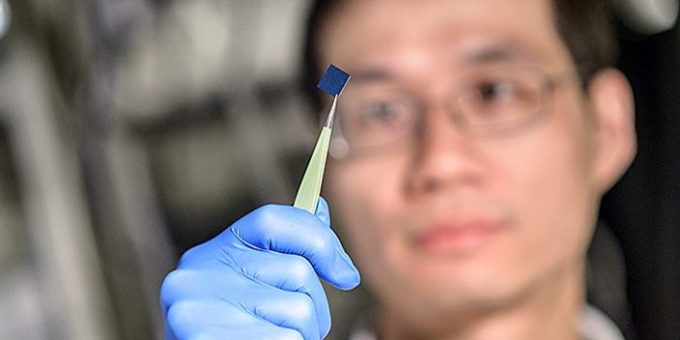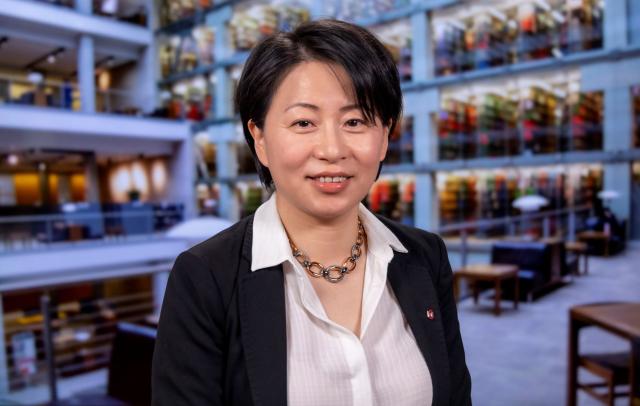
WEST LAFAYETTE — Purdue University will partner with 11 colleges and universities in Indiana, Ohio and Michigan to form the Midwest Regional Network to Address National Needs in Semiconductor and Microelectronics. The network will develop innovative solutions in higher education to best support the onshoring of the advanced semiconductor and microelectronics industries and address the industries’ research and workforce needs.

“With a comprehensive research curriculum and strong ties with industrial and academic partners, Purdue is in an ideal position to generate and help lead the next technological revolutions in commercial and secure microelectronics,” said Theresa Mayer, Purdue University executive vice president for research and partnerships. “We need all the fields that feed into and support the microelectronics ecosystem to ensure the domestic critical supply, and we are proud to partner with our distinguished Midwest neighbors in this endeavor.”

Purdue, which this spring launched the nation’s first comprehensive Semiconductor Degrees Program, is engaged in multiple microelectronics initiatives. In July, SkyWater Technology announced plans to open a $1.8 billion state-of the-art semiconductor manufacturing facility in the university’s Discovery Park District, cementing a broad step for the American semiconductor industry. Purdue leads the Department of Defense-funded SCALE – Scalable Asymmetric Lifecycle Engagement – a defense sector semiconductor workforce development program that includes 17 leading U.S. universities. An ongoing partnership with the Semiconductor Research Corporation (SRC) connects academic researchers and industrial practitioners to develop microelectronics and advance packaging technologies. Purdue’s Center for Brain Inspired Computing (C-BRIC), which has $32 million in funding from SRC, delivers key advances in cognitive computing via next-generation neuro-inspired algorithms and theory, neuromorphic computing fabrics and distributed intelligence. And the university’s College of Engineering recently announced a partnership with MediaTek Inc., a leading global fabless chipmaker, to open the company’s first semiconductor chip design center in the Midwest, to be housed on the Purdue campus.
In addition to Purdue, the academic institutions in the new network are:
- Case Western Reserve University
- Columbus State Community College
- Lorain County Community College
- Michigan State University
- Sinclair Community College
- The Ohio State University
- University of Cincinnati
- University of Dayton
- University of Michigan
- University of Notre Dame
- Wright State University
Each institution’s president recently signed a memorandum of understanding to form this network, which is intended to be open and is expected to grow beyond these initial institutions.
The network was formed following a two-day workshop in April hosted by Ohio State.

“This multibillion-dollar investment in the Midwest presents an incredible opportunity for our partner colleges and universities,” said Grace Wang, Ohio State’s executive vice president for research, innovation and knowledge. “We face global competition for talent to stay at the leading edge for research and development. Only through collaboration can we truly realize the promise this opportunity affords us.”
Partner institutions will leverage existing research, curricular and experiential learning assets, capabilities and expertise within the region and grow the collective capacity to support the domestic growth of robust semiconductor and microelectronics innovation and supply chain ecosystems.
Initial activities for the network include:
- Development of a common, secure, information-sharing platform to make it easier to identify expertise, equipment, facilities and curricular programs of interest to facilitate joint programming, research and/or outreach initiatives across the network.
- Regional collaborations and the promotion of workshops around opportunities to pursue regional funding to support identified needs across the semiconductor and microelectronics ecosystems.
- Development of pilot mechanisms to connect existing research, facilities and curricular/training assets across the region to optimize their capacity to address regional needs and opportunities.
Information: Mary Martialay, mmartial@purdue.edu
Source: Theresa Mayer, tsmayer@purdue.edu



